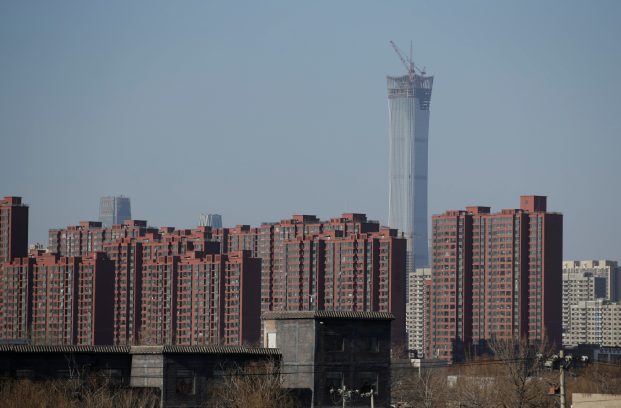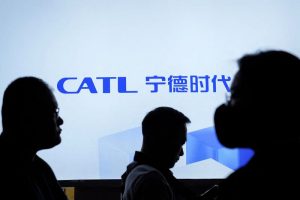Yet another Chinese shadow bank revealed it was unable to meet client redemption requests this week — a development that led its US-listed shares to tank more than 60% in three days.
Chinese wealth manager Hywin Holdings, whose products are primarily invested into real estate, announced on Thursday that asset managers for some of its products were unable to reach an agreement with “relevant clients” to defer their redemption requests.
While Hywin is a small player with total assets of 2.37 billion yuan ($328 million) as of the end of June, its troubles show how China’s faltering property sector is causing strain throughout the financial system.
Also on AF: Evergrande Sells Key Shanghai Stake as China Property Weakens
Hywin’s Nasdaq-listed shares plunged nearly 18% to a record low on Friday, after shedding more than 50% in the two previous trading sessions.
The wealth manager’s shares dropped to as low as $2.28, its lowest level on record. It went public on the Nasdaq for $10 in March 2021.
“Hywin could be yet another falling domino in the Chinese property chain,” said Ipek Ozkardeskaya, senior market analyst at Swissquote Bank.
“It serves as a stark reminder of the fragile health of the Chinese property market, despite the government’s efforts to slow down the haemorrhage.”
Exposure to Evergrande, Sunac China
Hywin’s announcement on Thursday followed market chatter on social media that the firm missed payments on some investment products.
The company said it has formed a special investigation committee comprised of senior management to oversee an internal investigation to the payment delays.
Hywin said in a statement that failure to resolve these redemption issues could “materially and adversely” impair its reputation, client relationship, business, financial condition and prospects.
The debt crisis emanating from China’s beleaguered property sector is one of the main headwinds to the country’s economic growth. It has led to downfall of some of the biggest real estate developers including Evergrande Group and Country Garden.
Defaults by some of these developers since late 2021 have impeded growth in the world’s second-largest economy and rattled global markets.
Hywin derives most of its revenues from distributing real estate products, including those investing in projects from Evergrande and Sunac China.
Net revenue from real estate products accounted for 88.8% of its wealth management services in the year to June 30, 2020, according to data from the company’s latest available prospectus.
Property crisis contagion
China’s shadow banking sector is worth $3-trillion – roughly the size of France’s economy. The industry typically operates outside many of the rules governing commercial banks in China.
Furthermore, proceeds of wealth products sold to retail investors are mainly channelled to real estate developers and other sectors.
Hywin is the latest Chinese financial services provider to report redemption failures on its products.
In July, Zhongrong International Trust, a trust firm controlled by leading Chinese wealth manager Zhongzhi Enterprise Group, missed payments on dozens of investment products.
Last month, Zhongzhi informed investors it was insolvent with liabilities of up to $64 billion.
“The news about Hywin clearly aligns with the challenges faced by other struggling property firms,” Ozkardeskaya said.
“Nevertheless, global repercussions will likely remain limited as international investors have largely divested and many investors know that the situation may get worse before it gets better,” she added.
- Reuters, with additional editing by Vishakha Saxena
Also read:
Second Shadow Bank Rocked by China’s Property Crisis
China’s Wanda in Deal With Investors to Avoid $4bn Repayment
China Evergrande Chairman ‘Suspected of Crimes’, Company Says
The Pledge That Brought Country Garden to the Brink of Default
Trust Fund Woes and Home Price Falls Add to China’s Problems
China’s $13tn Provincial Debt Crisis Threatens to Spill Over
Biden Likens China to ‘Ticking Time Bomb’ Due to Economic Woes
China’s Property Sector Will Remain Weak For Years: Goldman
























